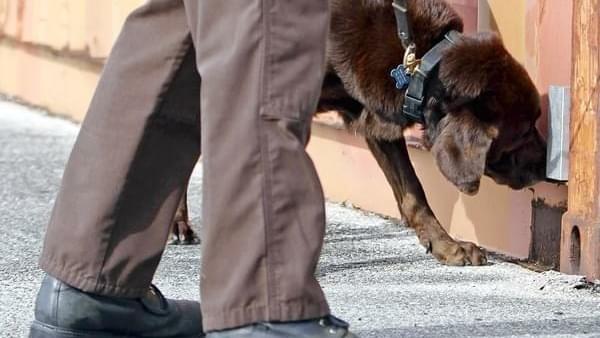
Supreme Court Agrees to take on Drug Sniffing Dog Case
Published on 1/7/12
The supreme court has finally decided to take on the case of the drug sniffing dog. This case, taking place in Florida, where the police used a drug sniffing dog to smell for marijuana at the door of a house or apartment when no prior complaints or illegal activity have been reported. The supremem court has agreed to see the case although they have not always ruled in favor of the people when it comes to similar cases.
The decision in a Florida case will be the latest test of the 4th Amendment's protection against "unreasonable searches" in drug cases. It also will be the third in a trilogy of rulings on drug-sniffing dogs.
In the past, the court has upheld the use of dogs to sniff luggage at airports and to sniff around cars that were stopped along the highway. The justices said that using trained dogs in public areas didn't violate anyone's right to privacy.
The Florida Supreme Court, however, said homes are different. The 4th Amendment "applies with extra force where the sanctity of the home is concerned," the state justices said last year.
Based on that rationale, they overturned a Miami man's conviction for growing marijuana at home. Acting on a tip, officers had taken Franky, a Labrador, to the front porch of a home owned by Joelis Jardines. The dog detected the odor of marijuana and sat down as he was trained to do. The police then used this information to obtain a search warrant. They found 179 marijuana plants inside the house.
Throwing out the evidence, the state justices said they were unwilling to permit "dog sniff tests … at the home of any citizen" unless the police had probable cause of criminal wrongdoing.
But the Supreme Court voted to hear the appeal of Florida prosecutors who contend that a dog's sniffing for drugs is not a "search" under any circumstances.
"Because a dog's alert tells the officer one thing, and one thing only — that the house contains illegal drugs — it cannot constitute a search," said Florida's state attorneys.
Eighteen states supported Florida's appeal and argued that police dogs are a valuable tool for detecting drugs and explosives.
The high court usually sides with the police in search cases. In May, the justices ruled police were justified in breaking down the door of an apartment in Lexington, Ky., because they smelled marijuana and believed the occupants were about to destroy the evidence. In an 8-1 decision, the court reasoned the police did not have time to obtain a search warrant.
But not every search method wins approval. The justices rejected the use of thermal imagers, which can detect the heat of powerful lights used to grow marijuana. In that case, the court decided that the device allows police to look into a house, and thereby violates the privacy rights of the homeowners.
The court said Friday it would hear the case of Florida vs. Jardines in April and issue a ruling on drug-sniffing dogs by late June.

